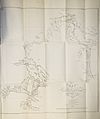Lorenzo Sitgreaves facts for kids
Quick facts for kids
Lorenzo I. Sitgreaves
|
|
|---|---|
| Born | March 15, 1810 Easton, Pennsylvania, U.S. |
| Died | May 14, 1888 (aged 78) Washington, D.C., U.S. |
| Buried |
Oak Hill Cemetery
Washington, D.C., U.S. |
| Years of service | 1827–1836, 1838–18?? |
| Rank | Lieutenant colonel |
| Unit | 1st Regiment of Artillery (1832–1836) Corps of Topographical Engineers (1838–18??) |
| Battles/wars | |
| Alma mater | United States Military Academy |
| Spouse(s) |
Lucy Ann Jesup
(m. 1854) |
| Children | 2 |
Lorenzo I. Sitgreaves (born March 15, 1810 – died May 14, 1888) was a brave U.S. Army officer. He is best known for leading an important journey in 1851. This trip explored the Zuñi River and Colorado River areas.
Contents
Early Life and Army Start
Lorenzo I. Sitgreaves was born in Easton, Pennsylvania, on March 15, 1810. His mother's father was a colonel in the American Revolutionary War.
Lorenzo went to the United States Military Academy in New York. He studied there from 1827 to 1832. He graduated as an officer, ranking 25th in his class.
After West Point, he became a Second Lieutenant in the 1st Regiment of Artillery. He served in different places, including Virginia and the Creek Nation. He briefly left the army in 1836 to work as a civil engineer.
Mapping and Exploring with the Army
In 1838, Sitgreaves rejoined the army. He became a Second Lieutenant in the Corps of Topographical Engineers. This group was special. Their job was to map lands, build roads, and survey important areas.
He helped build roads in Wisconsin and surveyed the Sault Ste. Marie area. He also helped map the U.S. border with Texas. Later, he worked on improving the Hudson River and surveying areas in Florida.
Serving in the Mexican-American War
During the Mexican–American War, Sitgreaves marched with General John E. Wool. He helped create maps of the routes and the land in Mexico. He fought bravely in the Battle of Buena Vista in 1847. For his courage, he earned an honorary promotion to Captain.
After the war, he helped survey the land for the Creek Indian Territory.
The Sitgreaves Expedition
In 1851, Captain Sitgreaves led a very important expedition. His team traveled down the Zuni River and west to the Colorado River. Their main goal was to find a good route to California.
This journey was the first detailed survey of the area between Zuñi Pueblo and the Colorado River. The trip lasted from September to November 1851. It helped people understand the geography of this part of the American West.
After the expedition, he spent a year writing a report about his findings. This report was published in 1853. Soon after, he was officially promoted to Captain.
Later Military Roles
In 1854, Lorenzo Sitgreaves married Lucy Ann Jesup. They had two daughters, Mary and Lucy.
He also worked as a Light-House Inspector in Detroit, Michigan, and a Light-House Engineer in Baltimore. These roles involved helping with lighthouses, which guide ships safely.
Civil War and Retirement
When the American Civil War began, Sitgreaves returned to active duty. He helped organize and recruit soldiers in New York and Wisconsin. During this time, he was promoted to Major and then to Lieutenant-Colonel. He also inspected defenses in Kansas and Nebraska.
After the Civil War ended, Sitgreaves oversaw harbor improvements on Lake Michigan. He retired from the army in 1866 due to health issues from his long service.
Lorenzo Sitgreaves passed away at his home in Washington, D.C., on May 14, 1888. He was buried at Oak Hill Cemetery.
Images for kids
 | Tommie Smith |
 | Simone Manuel |
 | Shani Davis |
 | Simone Biles |
 | Alice Coachman |


